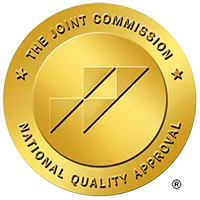Opioids can include prescription medications like oxycodone and OxyContin, as well as illicit opioids like heroin. They can be both physically and psychologically addicting. Opioids are highly addictive and can cause serious opioid withdrawal symptoms if you stop using. For help, most will turn to an opioid addiction treatment center in Denver.
In 2017, President Trump declared a public health emergency in response to the opioid epidemic. The opioid epidemic played a significant part in drug overdoses becoming the leading cause of accidental death in the country. In response, health insurance companies are mandated to cover substance abuse and mental health treatment in the same manner as medical conditions.
What are Opioids?
Opioids are prescription or illicit drugs that are derived from opium and poppy plants. When you take opiates, your brain releases dopamine, which is a neurotransmitter that causes positive emotions like happiness and relaxation. Opioids can also numb pain, as prescription opioids are used to treat severe, traumatic and chronic pain.
Oxycodone is one of the ten most prescribed medications in the United States, making it one of the most widely available opioids in the United States. Opioids create a warm sensation and deep feelings of relaxation, making them highly addictive. Since opioid addiction can cause changes to your reward pathways, your brain can become dependent on opioids in order to release neurotransmitters. This creates a significant neurotransmitter imbalance that can take time to correct without the help of addiction therapy programs.
Opioid addiction provides additional risks. Since your liver filters toxins and impurities, like opioids, addiction can cause liver damage.
Other risks associated with opioid abuse and addiction include:
- Worsening symptoms of co-occurring disorders
- Medical problems, such as infections
- Financial problems
- Isolation from friends and family
- Significant interpersonal conflict
- Personality and behavioral changes
Opioid Withdrawal Symptoms
Opioids are both physically and psychologically addicting. When you immediately stop using, you can experience intense opioid withdrawal symptoms. Opioid withdrawal signs typically include intense cravings, anxiety, and restlessness. Opioid withdrawal symptoms can begin within hours of your last use and intensify the longer you don’t use. Withdrawal symptoms can last for several days.
Other common signs of opioid withdrawal include:
- Restless legs
- Cramps
- Aches and pain
- Nausea, vomiting, and diarrhea
- Insomnia, exhaustion, and disorientation
While opioid withdrawal symptoms are uncomfortable and painful, they rarely cause complications or death. Treatment programs can help you successfully detox and alleviate most opioid withdrawal symptoms.
Following detox, opioid addiction treatment can greatly improve your ability to recover. Evidence-based and holistic treatments can help you identify triggers and learn how to cope with cravings in a healthy way. Individual counseling provides you the ability to share complex or overwhelming emotions and thoughts in a supportive, confidential environment. Addiction treatment centers can also offer family and marriage counseling.
Finding Help Today
Struggling with opioid addiction can make you feel trapped, frustrated and hopeless. Opioid withdrawal symptoms can make it hard to quit. But help is only a phone call away. Red Rock Recovery Center, the best opioid addiction treatment center Denver offers, has the experience, dedication and compassion to help you find recovery. To learn more about our programs, call us today at [Direct].




